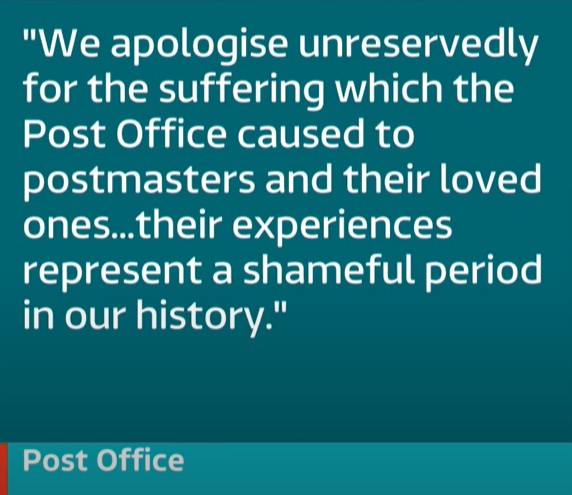
Page Descriptopn
Explore how blind legal systems destroy trust — and why justice sometimes fails, even when the truth is right in front of us.
It’s not always lies or bad intentions that undermine justice — sometimes, it’s the unwavering belief in being right that crushes the innocent.
What begins as procedure turns into a machine that leaves no room for doubt or humanity. Even when the signals are unmistakable — when there is no evidence, when the accusation doesn’t hold, when innocence is clear — the system pushes forward. At that point, justice is no longer a safeguard of truth, but a source of harm.
When justice is misused, it doesn’t always look like corruption or chaos. Sometimes, it appears calm, procedural — and completely wrong. The real danger lies in its rigidity: when the system continues blindly, even in cases where innocence is obvious, or where the facts demand that everything stop. This isn’t about difficult legal debates. It’s about what should have never been prosecuted in the first place — and how, by ignoring the clear signals, justice becomes not only flawed, but poisonous.
What makes this failure even more troubling is that it happens in plain sight. Society offers what could be called “anchors” — moral, factual, and institutional signals that should have brought the process to a halt. Think of community support, clear inconsistencies in the accusations, or even a complete absence of evidence. These are not small technicalities; they are structural signs that justice should never have advanced. Yet, the system pushes forward — indifferent to reality, impervious to doubt. In such cases, justice is no longer a protector of truth, but an active participant in harm. And when that harm is allowed to grow unchecked, the legitimacy of the entire legal system begins to collapse from within.
For those involved, this is more than just a legal error — it’s a rupture in their lives. People lose not only their freedom, their jobs, or their reputations, but often also their trust in everything they once relied on: institutions, the pursuit of truth, even other human beings. When society sees that such obvious injustices can unfold without correction, it undermines trust in the rule of law itself. Because if no one intervenes in the clearest of cases, who or what is left to protect us? A justice system that refuses to acknowledge or repair its own mistakes ultimately loses not only its moral compass, but also its legitimacy.
De Gevaarlijke Starheid van Justitie
Een Fatale Fout in het Hart van het Systeem
Het is niet altijd de leugen of het kwaad die Justitie ondermijnen — soms is het juist de onverzettelijke trouw aan het eigen gelijk, waardoor onschuldigen met de grond worden gelijk gemaakt.
Wat begint als een procedure, groeit uit tot een machinerie die geen ruimte laat voor twijfel of menselijkheid. Zelfs wanneer de signalen overduidelijk zijn — wanneer er geen bewijs is, wanneer de aanklacht rammelt, of wanneer de onschuld praktisch zichtbaar is — blijft het systeem doordenderen. Dan verandert Justitie van een hoeder van waarheid in een bron van schade.
Wanneer justitie wordt misbruikt, ziet dat er niet altijd uit als corruptie of wanorde. Soms lijkt alles ordelijk en volgens de regels — en is het tóch totaal onjuist. Het echte gevaar zit in de starheid: wanneer het systeem blind doorgaat, zelfs in zaken waarin de onschuld overduidelijk is, of waarin de feiten juist vereisen dat alles stopt. Dit gaat niet over ingewikkelde juridische kwesties. Dit gaat over zaken die nooit vervolgd hadden mogen worden — en hoe justitie, door de duidelijke signalen te negeren, niet alleen gebrekkig wordt, maar zelfs giftig.
Wat deze mislukking des te verontrustender maakt, is dat ze zich gewoon openlijk voltrekt. De samenleving biedt wat je ‘ankerpunten’ kunt noemen — morele, feitelijke en institutionele signalen die het proces tot stilstand hadden moeten brengen. Denk aan de steun van de gemeenschap, duidelijke tegenstrijdigheden in de beschuldigingen, of zelfs een totaal gebrek aan bewijs. Dit zijn geen kleine technische details; het zijn structurele aanwijzingen dat justitie nooit had mogen doorgaan. Toch duwt het systeem koppig verder — ongevoelig voor de werkelijkheid, ongevoelig voor twijfel. In zulke gevallen is justitie niet langer de beschermer van waarheid, maar een actieve deelnemer aan het onrecht. En wanneer dat onrecht ongestoord blijft groeien, begint de legitimiteit van het hele rechtssysteem van binnenuit af te brokkelen.
Voor de betrokkenen betekent dit meer dan een juridische vergissing — het betekent een levensbreuk. Mensen verliezen niet alleen hun vrijheid, hun baan of hun reputatie, maar vaak ook hun vertrouwen in alles waar ze ooit op rekenden: instellingen, waarheidsvinding, zelfs medemensen. Wanneer de samenleving ziet dat zulke evidente misstanden kunnen plaatsvinden zonder correctie, tast dat het vertrouwen in de rechtsstaat zelf aan. Want als zelfs in de duidelijkste gevallen niemand ingrijpt, wie of wat beschermt ons dan nog? Een rechtssysteem dat weigert zijn eigen fouten te erkennen of te herstellen, verliest uiteindelijk niet alleen zijn moreel kompas, maar ook zijn geloofwaardigheid.
Truth and Tragedy – The First Findings of the Inquiry – The Human Impact
The public inquiry, led by Sir Wyn Williams, spent over three years gathering evidence, reviewing more than 2.3 million pages of documents. The scope and depth of the investigation reflect the scale of the injustice.
Throughout the scandal, the Post Office focused on protecting the institution and its brand — often at the expense of truth and basic human decency.
On 8 July 2025, the first part of the final report was published, focusing on the human impact of the scandal. It confirmed what many already feared:
At least 13 people are believed to have taken their own lives as a result of this injustice.
58 others attempted suicide.
Nearly 11,000 individuals have come forward seeking redress.
Even during the inquiry, Fujitsu’s leadership publicly admitted that bugs in the Horizon system were known from the very beginning. Despite this, the Post Office fought tooth and nail to defend the software — long after it was abundantly clear that Horizon was the cause of the shortfalls that ruined Subpostmasters’ lives.
“It is incomprehensible that such large-scale denial was possible — that an institution could insist, against overwhelming evidence, that nothing was wrong with the software, while devastating thousands of lives in the process.”
In response to the report, the Post Office issued the following statement:
“We apologise unreservedly for the suffering which the Post Office caused to Postmasters and their loved ones… Their experiences represent a shameful period in our history.”
Het publieke onderzoek onder leiding van Sir Wyn Williams nam meer dan drie jaar in beslag en betrof de analyse van ruim 2,3 miljoen documenten. De omvang en diepgang van dit onderzoek weerspiegelen de schaal van het onrecht.
Gedurende het hele schandaal richtte de Post Office zich vooral op het beschermen van de eigen reputatie en het merk — vaak ten koste van de waarheid en elementaire menselijke waardigheid.
Op 8 juli 2025 werd het eerste deel van het eindrapport gepubliceerd, met een focus op de menselijke impact van het schandaal. Daarin werd bevestigd wat velen al vreesden:
Minstens 13 mensen zouden als gevolg van dit onrecht hun leven hebben verloren.
58 anderen deden een poging tot zelfdoding.
Bijna 11.000 mensen hebben zich gemeld voor compensatie.
Zelfs tijdens de openbare verhoren gaf de leiding van Fujitsu toe dat de bugs in het Horizon-systeem al vanaf het begin bekend waren. Toch bleef de Post Office met hand en tand het systeem verdedigen — lang nadat het zonneklaar was dat Horizon de oorzaak was van de tekorten waarvoor Subpostmasters verantwoordelijk werden gehouden.
“Het is onbegrijpelijk dat zo’n grootschalige ontkenning mogelijk was — dat een instelling kon volhouden, ondanks overweldigend bewijs, dat er niets mis was met de software, terwijl het duizenden levens verwoestte.”
Als reactie op het rapport gaf de Post Office de volgende verklaring uit:
“We bieden onze oprechte excuses aan voor het leed dat de Post Office heeft veroorzaakt aan Subpostmasters en hun dierbaren… Hun ervaringen vertegenwoordigen een beschamende periode in onze geschiedenis.”
After the Inquiry: Subpostmasters Share Their Initial Reactions
Thirteen people may have taken their lives over Post Office scandal – inquiry report | ITV News
8 jul 2025
A damning report into the Post Office Horizon IT scandal has concluded that at least 13 people may have taken their own lives after being accused of wrongdoing.
The report, issued as part of the long-running inquiry into the faulty Horizon IT system used in Post Office branches, described the impact on subpostmasters as “disastrous” and said it heard evidence from 59 others who had also contemplated suicide as a result of the pressures from the scandal.
Approximately 1,000 subpostmasters were wrongfully prosecuted by the Post Office between 1999 and 2015 after the faulty Legacy Horizon software made it look as though money was missing from their accounts.
Tuesday’s 162-page report, written by inquiry chair Sir Wyn Williams, also concluded Post Office bosses knew the Horizon IT system had widespread faults, but had “maintained the fiction” it was accurate for years.
Sir Wyn said: “Although many of the individuals who gave evidence before me were very reluctant to accept it I am satisfied from the evidence that I have heard that a number of senior, or not so senior employees, of the Post Office knew or at the very least should have known that Legacy Horizon was capable of error.
“Yet, for all practical purposes, throughout the lifetime of Legacy Horizon, the Post Office maintained the fiction that its data was always accurate.”
The report also found the Legacy Horizon system’s 2010 replacement – known as Horizon Online – was also “afflicted by bugs” and that employees of Fujitsu and the Post Office “knew that this was so”.
How much suffering can an institution cause before it is forced to face itself?
This report shows what happens when a broken system leaves no room for recognition or repair. At least thirteen people are believed to have lost their lives as a result of these wrongful prosecutions. A quiet tragedy that unfolded over years — and continues to echo today.
Hoeveel leed kan een instituut aanrichten voordat het zichzelf onder ogen moet komen?
Deze reportage laat zien wat er gebeurt wanneer een fout systeem geen ruimte laat voor erkenning of herstel. Minstens dertien mensen zouden als gevolg van deze onterechte vervolgingen hun leven hebben verloren. Een stille ramp die zich over jaren voltrok — en die nog steeds doorwerkt.
What Emerges Is Profoundly Disturbing
Post Office Inquiry: Bosses ‘maintained fiction’ Horizon was accurate, inquiry concludes
8 jul 2025 #DailyRecord #postofffice #horizon
Post Office bosses should have known Horizon was faulty but “maintained the fiction that its data was always accurate” when prosecuting subpostmasters, the first tranche of a public inquiry’s final report has concluded.
Chairman Sir Wyn Williams said “a number of senior” people at the organisation were aware the system, known as Legacy Horizon, was capable of error up until it was changed in 2010, with a number of employees also aware the updated system, Horizon Online, also had bugs and defects.
Post Office scandal: 13 people may have taken their own lives after false accusations
It’s been described as the worst miscarriage of justice in British legal history and finally the long-running inquiry into how the Post Office Horizon scandal unfolded has produced its first report.

The experiences of the postmasters represent a shameful period in our history
At least 13 postmasters may have taken their own lives after being accused of wrongdoing
8 jul 2025 #postoffice #postofficeinquiry #politics
At least 13 postmasters may have taken their own lives after being accused of wrongdoing based on evidence from the Horizon IT system that the Post Office and developers Fujitsu knew could be false, a public inquiry has found.
A further 59 people told the inquiry they considered ending their lives, ten of whom tried on at least one occasion, while other postmasters and family members recount suffering from alcoholism and mental health disorders including anorexia and depression, family breakup, divorce, bankruptcy and personal abuse.
Anyone feeling emotionally distressed or suicidal can call Samaritans for help on 116 123 or email jo@samaritans.org in the UK. In the US, call the Samaritans branch in your area or 1 (800) 273-TALK.
Post Office Inquiry to name and shame those responsible as first report released
8 jul 2025
“if you listen to most of the victims saying it feels like they’re being judged again, it feels like they’re having to go through another court case.”
With nearly 11,000 victims of the Post Office scandal have come forward to claim redress and after 2.3 million pages of documents, Sir Wyn Williams has filed his first report.
Educational: This video is essential viewing
Educational: This video is essential viewing
Victims of the Post Office scandal reveal how their lives were ruined by false claims
8 jul 2025 #postoffice #politics #uknews
The first volume of the Post Office Horizon IT Inquiry report looked at what Sir Wyn Williams called the “disastrous” impact of false accusations made against at least 1,000 postmasters.
Thirteen people are known to have killed themselves following the allegations made against them by the Post Office.
Sky News spoke to some of those whose lives were ruined by the company.
Anyone feeling emotionally distressed or suicidal can call Samaritans for help on 116 123 or email jo@samaritans.org in the UK. In the US, call the Samaritans branch in your area or 1 (800) 273-TALK
‘PROFOUNDLY DISTURBING’ Post Office Horizon scandal report released
Today, the Post Office Horizon IT Inquiry released the first part of its final report, concentrating on the human impact of the scandal and the compensation provided to victims.
Post Office victims say government should no longer control compensation
7 jul 2025 #skynews #postoffice #ukgovernment
Post Office scandal victims are calling for redress schemes to be taken away from the government completely, ahead of the public inquiry publishing its first findings.
“Take (them) off the government completely,” says Jo Hamilton OBE, a high-profile campaigner and former sub-postmistress, who was wrongly convicted of stealing from her branch in 2008.
“It’s like the fox in charge of the hen house,” she adds, “because they were the only shareholders of Post Office”.
Post Office inquiry: ‘Disturbing’ report reveals 19 recommendations – ‘many thousands’ have suffered
8 jul 2025 #postoffice #postofficescandal #uknews
The Post Office Horizon IT Inquiry has published the first part of its final report, which focuses on the human impact of the scandal and compensation for victims.
Sir Wyn Williams, the chair of the inquiry, revealed their findings.
Educational: Important
Former subpostmasters react to findings of Post Office Inquiry | ITV News
8 jul 2025
Among those listening very carefully to the findings of the first report into the Horizon IT scandal today were two subpostmasters whose lives were ruined by the Post Office.
Ninety-two year old Betty Brown is the oldest surviving victim.
She was forced to sell her business because of the IT errors – something she said ruined her health.
She ran a Post Office in County Durham with her husband who died before he saw a penny in compensation or justice.
And Tracey Merrit ran Post Offices in Dorset when she was falsely accused.
Post Office investigators banned her from speaking to her daughter who had worked alongside her.
They spoke to Ellie Pitt about what today means to them and how their fight for justice is far from over.
When Justice Turns a Blind Eye: The Fatal Flaw in the Post Office Scandal
Post Office Inquiry. Horizon was Utterly Unreliable. Henry Stauntons first impression of Horizon
Post Office: ex-chairman Henry Staunton says he’s been ‘accused of being liar’ in row with Badenoch
This afternoon, Henry Staunton presented evidence to the Business and Trade Committee in response to accusations of dishonesty made by Kemi Badenoch earlier this month. While the Business Secretary refuted allegations in the House last week, asserting that claims about the Post Office deliberately delaying payments to sub-postmasters affected by the Horizon scandal were false, Mr. Staunton arrived in Westminster today armed with supporting evidence for his assertions.
The Post Office Scandal Explained
24 mrt 2025
In what’s been called the largest miscarriage of justice in UK history, the Horizon scandal reveals deep seated denial and deceit from the highest levels of society. Thousands were wrongly convicted of stealing money from their jobs when in fact, it was faulty software. In this episode we explore the gripping story.
Educational: This video is essential viewing
The Post Office Scandal — ColdFusion
A gripping summary of the UK’s biggest miscarriage of justice. Faulty software led to thousands of wrongful convictions, while leaders denied and deflected responsibility. This video explains how it happened — and why it matters.
Het Post Office-schandaal — ColdFusion.
Een indringende samenvatting van de grootste gerechtelijke dwaling in de Britse geschiedenis. Foutieve software leidde tot duizenden onterechte veroordelingen, terwijl leiders verantwoordelijkheid ontkenden en afschoven. Deze video legt uit hoe het zover kwam — en waarom het ertoe doet.
How could a public institution — trusted for centuries — go so ruthlessly off course? From the very beginning, the helpline lied. Signals of innocence were ignored. Thousands of Subpostmasters were blamed, humiliated, and ruined, even though the system knew the fault was not theirs. Everything was upheld to preserve an illusion: the software had to be flawless, the Post Office infallible, and any criticism seen as a threat.
What the Public Inquiry now makes painfully clear is that this was no tragic accident — it was a system that deliberately upheld appearances. Instead of investigating with honesty, it chose concealment, denial, and prosecution. The suffering was not incidental; it was accepted as the cost of maintaining control.
As Alan Bates made unmistakably clear: this wasn’t just deception — it was blatant deceit. Cold, calculated, and sustained, at the expense of ordinary people. When justice hardens into self-protection, when institutions care more about image than accountability, they lose their moral compass. Law becomes ritual, and the pursuit of truth becomes a threat.
That’s how “perfection” became fatal — because it could not tolerate the unpredictability of real human lives.
Hoe heeft dit kunnen gebeuren? Hoe kon een publiek instituut, dat eeuwenlang werd vertrouwd, zo meedogenloos ontsporen? Vanaf het begin loog de hulplijn, werden signalen van onschuld genegeerd, en werden duizenden Subpostmasters beschuldigd, vernederd en gebroken — terwijl het systeem wist dat de fout niet bij hen lag. Alles werd in stand gehouden: de software moest perfect zijn, de Post Office onfeilbaar, en kritiek werd gezien als gevaar.
Wat de Public Inquiry nu pijnlijk duidelijk maakt, is dat dit geen tragische vergissing was, maar een systeem dat doelbewust de schijn wilde ophouden. In plaats van eerlijk te onderzoeken, koos men voor verbergen, ontkennen en vervolgen. De schade was geen bijzaak — het werd geaccepteerd als noodzakelijk offer voor het behouden van het imago.
Zoals Alan Bates liet zien: dit was niet gewoon misleiding. Het was blatant deceit — kille, berekende misleiding ten koste van onschuldige mensen. Als rechtspraak verstart tot zelfbescherming, en instellingen liever schone schijn ophouden dan verantwoordelijkheid nemen, dan verliezen ze hun moreel kompas. Dan verandert recht in een ritueel, en de zoektocht naar waarheid in een bedreiging. En zo werd “perfection” dodelijk toen het de onvoorspelbaarheid van echte mensen niet wilde erkennen.
What Happens When Perfection Meets Unpredictability

Hyacinth Can’t Handle Her Gooseberry Wine | Keeping Up Appearances
When control becomes obsession, things break — whether in courtrooms or over a glass of wine. Even Hyacinth can’t cope when things spill out of control — a comic mirror to systems that demand order, even when life refuses to follow the script.
Gooseberry wine and rigid expectations: sometimes collapse begins with a minor spill.
Wat gebeurt er als perfectie botst met onvoorspelbaarheid?
Wanneer controle omslaat in obsessie, breekt er iets — of het nu in de rechtszaal is of bij een glas wijn. Zelfs Hyacinth weet zich geen raad als de dingen uit de hand lopen — een komische spiegel van systemen die orde eisen, ook wanneer het leven zich niet aan het script houdt.
Kruisbeswijn en starre verwachtingen: soms begint de instorting met een klein ongelukje.

Gooseberries come in green varieties or you can grow sweeter red varieties.
